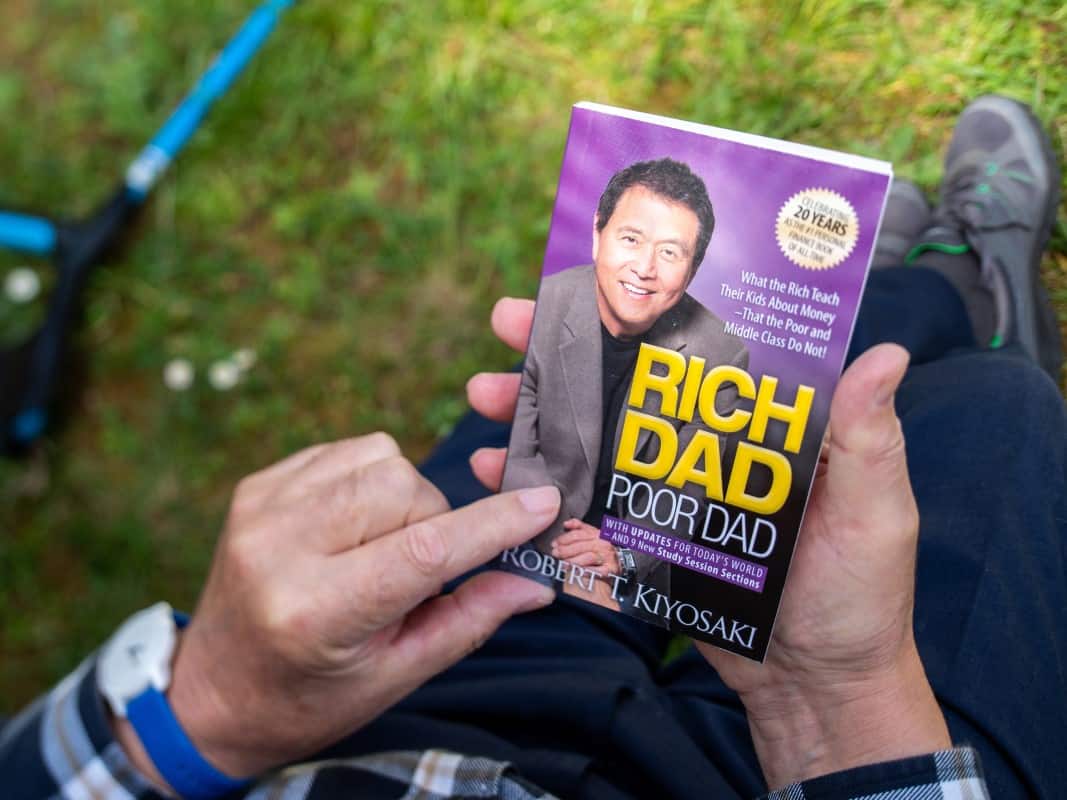Millions Face Wage Garnishment Starting Tomorrow As Trump Resumes Student Loan Collections – Financial Freedom Countdown
After a five-year pause, the Education Department is set to resume aggressive student loan debt collection starting tomorrow, May 5.
Millions of borrowers could face wage garnishments and seized tax refunds—unless they take immediate action.
Over 14 Million Borrowers Behind or in Default as Protections Expire

Currently, 42.7 million borrowers owe over $1.6 trillion in student debt, with more than 5 million borrowers in default for over 360 days; many for more than seven years.
Another 4 million are in late-stage delinquency, and this number could push nearly 10 million into default in the coming months.
If that happens, almost a quarter of the federal student loan portfolio will be in default.
Shockingly, only 38% of borrowers are making regular payments, while the rest are either delinquent, in an interest-free forbearance, or in deferment. Only a small percentage remain in a grace period or enrolled in school.
Trump Administration Resumes Collections

This move comes under the revived leadership of the Trump administration, marking the official end of leniency. The policy, which had paused collections since March 2020, will now reverse course dramatically.
Federal student loan payments and interest were first paused in 2020 under President Donald Trump as a temporary relief measure. The Biden administration extended the pause several times through 2023, but the final grace period officially ended in October 2024, forcing tens of millions of Americans back into repayment.
Student Loan Borrowers Had 4.5 Years of Protections

For over four and a half years, federal student loan borrowers benefited from essential protections that shielded them from the harsh consequences of missed payments and defaults. During the student loan pause, which spanned from March 2020 to September 2024, most borrowers were not required to make payments, and interest was frozen.
When payments resumed last fall, the Education Department introduced the “on-ramp” program, extending some of these safeguards.
Although payments were due, the program provided borrowers with flexibility if payments were missed.
Wage Garnishment and Seizure of Federal Benefits

Beginning in May, the Federal Student Aid office will relaunch the Treasury Offset Program, allowing the government to seize benefits such as Social Security checks and tax refunds from borrowers behind on their payments.
After a 30-day warning period, the Treasury Department will escalate collections by garnishing wages from those in default.
Education Secretary: “Taxpayers Shouldn’t Pay for Irresponsibility”

Education Secretary Linda McMahon defended the shift. In a sharply worded official statement, she said, “While Congress mandated that student and parent borrowers begin to repay their student loans in October 2023, the Biden-Harris Administration refused to lift the collections pause and kept borrowers in a confusing limbo. The previous Administration failed to process applications for borrowers who applied for income-driven repayment and continued to push misguided “on-ramps” and illegal loan forgiveness schemes to win points with borrowers and mask rising delinquency and default rates.”
“American taxpayers will no longer be forced to serve as collateral for irresponsible student loan policies. The Biden Administration misled borrowers: the executive branch does not have the constitutional authority to wipe debt away, nor do the loan balances simply disappear. Hundreds of billions have already been transferred to taxpayers. Going forward, the Department of Education, in conjunction with the Department of Treasury, will shepherd the student loan program responsibly and according to the law, which means helping borrowers return to repayment—both for the sake of their own financial health and our nation’s economic outlook.”
Confusion and Whiplash for Borrowers

Borrower advocates criticized the sudden change, citing policy whiplash between the Biden and Trump administrations. Many borrowers are still grappling with a confusing and turbulent repayment landscape.
Layoffs at the Federal Student Aid Office Compound the Chaos

Federal Student Aid, the agency tasked with assisting borrowers, has seen recent layoffs. As a result, getting help or answers, even for those trying to repay has become increasingly difficult.
Broken Promises: From Forgiveness to Forbearance

Under Biden, over 5 million borrowers saw some loan relief, and more than $183 billion was wiped out through expanded forgiveness programs.
However, the Supreme Court blocked Biden’s broader relief initiative, leaving many borrowers in limbo.
SAVE Plan Uncertainty Adds to Borrower Anxiety

Court rulings in early 2025 temporarily halted enrollment in the Biden-era SAVE Plan, a popular income-driven repayment option.
Although applications have since reopened, confusion remains for those navigating the program.
Forbearance Wasn’t a Free Pass

Borrowers in forbearance, a temporary payment relief status, continued to rack up interest. That means even those not required to pay now could see their balances grow over time.
One Lifeline: Loan Rehabilitation

Borrowers in default can try to enter loan rehabilitation, a one-time option to remove default status by making nine on-time payments. However, navigating this process requires persistence and paperwork.
The Clock is Ticking: Credit Scores at Risk After 90 Days of Missed Payments

Those who miss the May 5 deadline risk long-term damage to their credit.
Default status is reported to credit bureaus and can haunt borrowers for years.
In a WSJ opinion article, titled Accountability Returns to Student Loans, Education Secretary Linda McMahon said, “Borrowers who don’t make payments on time will see their credit scores go down, and in some cases their wages automatically garnished.”
How to Avoid a Credit Score Hit: What Borrowers Should Do Now

Borrowers can prevent damage to their credit scores by resuming their student loan payments. However, many will face larger loan balances due to accumulated interest since the forbearance began.
Financial advisors recommend creating a repayment strategy now to avoid falling behind. For those who can’t afford their monthly payments, options like income-driven repayment plans or working with a financial advisor could help.
No Money to Pay? Ignoring Student Loans Isn’t an Option

Failing to make student loan payments can lead to more than just a hit on your credit. In extreme cases, the government can withhold federal and state tax refunds or garnish wages to collect overdue payments.
Borrowers are encouraged to seek help, whether through a financial advisor or a nonprofit organization, to find the best repayment plan for their situation.
Beyond Credit Scores: Other Consequences of Not Paying Student Loan

Missing student loan payments doesn’t just hurt your credit. If your loans go into default, the entire loan balance becomes due immediately, and the government has the power to withhold your tax refunds or federal payments to recover the debt.
In some cases, the government could also garnish wages. These harsh penalties can make an already tough financial situation even worse.

Democratic lawmakers have condemned the policy, particularly its impact on older Americans. With Social Security benefits now eligible for seizure, seniors who rely on that income may be disproportionately affected.
Senator Elizabeth Warren and fellow lawmakers pushed the Biden administration last year to stop seizing Social Security checks from student loan defaulters — a move they condemned as especially harmful to seniors and people with disabilities who depend entirely on those benefits to survive.
Will There Be Another Extension? Don’t Count on It

Despite the multiple extensions of the student loan moratorium since 2020, borrowers should not expect another one. With legal battles and political opposition surrounding debt relief, it’s unlikely that the pause will be extended further.
As the countdown to May begins, millions of Americans face a critical financial decision. Ignoring student loan payments is not an option—doing so risks long-term financial damage, including credit score hits and severe penalties from the government.
Now is the time for borrowers to act, plan, and protect their financial futures.
Preparing for the Payment Restart: What You Need to Do

With student loan payments resuming soon, it’s crucial for borrowers to take action now.
Signing into your loan account, updating your contact information, and exploring different repayment options are key steps to ensure you’re prepared.
With the repayment pause ending, it’s time to get organized and make a plan to minimize financial strain and credit damage as per the Department of Education Press Release.
The Education Department is encouraging defaulted borrowers to contact the Default Resolution Group or their loan servicers immediately to explore repayment or rehabilitation options.
Advocates Criticize Aggressive Collections Options

Advocates warn that restarting aggressive collections could backfire economically, as it pulls funds from low-income Americans who may already be struggling to make ends meet.
Critics argue that the move is less about fiscal discipline and more about extracting revenue from vulnerable populations, as economic uncertainty and high inflation continue to pressure households.
With collections back on the table, the federal government is signaling a tough-love approach to student loans — one that’s likely to stir debate and resentment for years to come.
Like Financial Freedom Countdown content? Be sure to follow us!

While singles may have fewer Social Security filing options than married couples, smart planning around when to claim benefits can pay off for anyone, including those flying solo.
Maximize Your Benefits: Essential Social Security Strategies for Singles
The 9 States Taxing Social Security in 2024 and the 3 That Just Stopped

While many bask in the belief that their golden years will be tax-friendly, residents in specific states are facing a reality check as their Social Security benefits come under the taxman’s purview. Conversely, a wave of relief is set to wash over two states, marking an end to their era of taxing these benefits. This shift paints a complex portrait of retirement planning across the U.S., underscoring the importance of staying informed of the ever changing tax laws. Are you residing in one of these states? It’s time to uncover the impact of these tax changes on your retirement strategy and possibly reconsider your locale choice for those serene post-work years. Here are the states taxing social security benefits.
The States Taxing Social Security in 2024 and the 3 That Just Stopped
Shift From Employee to Investor Mindset with the Cashflow Quadrant Methodology by Robert Kiyosaki

Countless systems have been established that provide a much better understanding of what income generation is, how it can be used, and how individuals can organize their financial life as they work towards financial freedom. One of the more successful and better-known examples of financial education is the Cashflow Quadrant, the book by Robert Kiyosaki. Rich Dad’s Cashflow Quadrant was revolutionary for the way it organized money and helped people better learn how to increase their income. As the name implies, there are four quadrants within the Cashflow Quadrant. By mastering each of the four categories – or specializing in one – a person can increase their revenue stream and ultimately make more money.
Shift From Employee to Investor Mindset with the Cashflow Quadrant Methodology by Robert Kiyosaki
Retire Abroad and Still Collect Social Security? Avoid These 9 Countries Where It’s Not Possible

Dreaming of retiring to a sun-drenched beach or a quaint village? Many Americans envision spending their golden years abroad, savoring the delights of new cultures and landscapes. However, an essential part of this dream hinges on the financial stability provided by Social Security benefits. Before packing your bags and bidding farewell, it’s crucial to know that not all countries play by the same rules when it comes to collecting these benefits overseas. Here are the nine countries where your dream of retiring abroad could hit a snag, as Social Security benefits don’t cross every border. Avoid living in these countries so your retirement plans don’t get lost in translation.
Retire Abroad and Still Collect Social Security? Avoid These 9 Countries Where It’s Not Possible

Did you find this article helpful? We’d love to hear your thoughts! Leave a comment with the box on the left-hand side of the screen and share your thoughts.
Also, do you want to stay up-to-date on our latest content?
1. Follow us by clicking the [+ Follow] button above,
2. Give the article a Thumbs Up on the top-left side of the screen.
3. And lastly, if you think this information would benefit your friends and family, don’t hesitate to share it with them!

John Dealbreuin came from a third world country to the US with only $1,000 not knowing anyone; guided by an immigrant dream. In 12 years, he achieved his retirement number.
He started Financial Freedom Countdown to help everyone think differently about their financial challenges and live their best lives. John resides in the San Francisco Bay Area enjoying nature trails and weight training.
Here are his recommended tools
Personal Capital: This is a free tool John uses to track his net worth on a regular basis and as a retirement planner. It also alerts him wrt hidden fees and has a budget tracker included.
Platforms like Yieldstreet provide investment options in art, legal, real estate, structured notes, venture capital, etc. They also have fixed-income portfolios spread across multiple asset classes with a single investment with low minimums of $10,000.